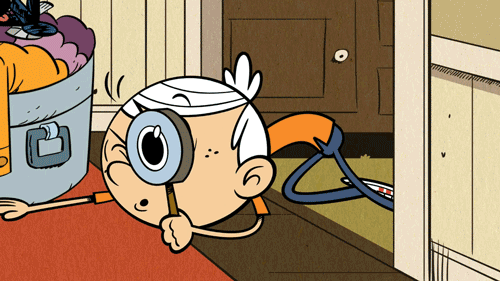I explained that the most popular search engine by far is Google with 70% of the market. This post tends to focus mostly on Google for this reason but the principles hold good for most search engines though they do all have their own idiosyncrasies. If you are having trouble applying some of my tips to your own preferred search engine you can always ask me a question by clicking on the big orange comments button on the right side of this blog page.
Before I begin, a couple of reminders. First, results at the top of the list returned invariably have Ad or Sponsored alongside them. This signifies that someone has paid money to increase their place in the list. It doesn’t mean that the hits at the top of the results page necessarily best match your query. Second, results tend to reflect the popularity of the site and the frequency that your query has been used by others. It is therefore sensible to phrase your search query as carefully as you can in order to increase the likelihood of success. This post offers help on doing just this.
Tips for better searching
Google does not bother about upper or lowercase so you don’t need to be grammatically correct in your search query. Paris; paris or even PaRiS will yield the same results.
On the other hand, spelling does matter because people often mis-spell their search and the search engine will do its best to find the exact term. Parris will return practically anything but information about the capital of France! However, occasionally a little trick is to deliberately spell a search term wrongly because that just might return a site that people spelling correctly are never led to.
In most cases you don’t need to worry about typing complete sentences. For example, there is nothing wrong with typing Please tell me all about the bridges over the River Seine in Paris can be simply paraphrased as bridges over the seine or even seine bridges to get the same or similar results. Also, of course, it takes less time to type. Mind you, if you mis-spell and type sean bridges you will learn all about people by that name but nothing about the River Seine.
Next, a word about the use of speech marks “ “ in queries. To Google, enclosing a search term in speech marks means find me exactly this term. Thus if you type “sean” bridges paris you might get something like this:
Search engines, like Google, create massive indexes (OK, teachers, indices!) by scouring the internet for keywords. If these are conveniently located in the SEO part of the website coding it is easy for the search engine to pick them up and add to the index. Thus, when trying to find websites that match your search terms it is a much quicker process for the search engine to check the indexes first where the key word, if it exists, will have links to sites that contain it. There are companies that specialise in (and make money by) writing these keywords and sell their services on the basis of improving the hit rates for website owners. An example website will demonstrate this big SEO business.
Click here https://bit.ly/2VG4tLw (NB. You will reach a site called Fiverr but be invited to sign up for an account. Just click outside the invite box to see the site.)
Incidentally, if you were expecting to see the name Fiverr in the link you may wonder why the term bit.ly is there instead. Bit.ly is a universal web service called a URL Shortener. URL shorteners are used to reduce very long website names to a short form. I think you will agree that /2VG4tLw is preferable to the following which still goes to the same website.
fiverr.com/categories/online-marketing/seo-services/keyword-research?utm_source=google&utm_medium=cpc&utm_campaign=g_uk_seo_desktop_bmm&utm_term=bmm_seo_optimization&utm_content=AdID^437787748548^Keyword^%2Bsearch%20%2Boptimization^Placement^^Device^c&caid=10139515118&agid=102023712139&ad_id=437787748548&kw=%2Bsearch%20%2Boptimization&lpcat=&show_join=true&gclid=CjwKCAiA_Kz-BRAJEiwAhJNY78FYk8oAHrFImH3ioidYTFHAyBbcsH-wDCOpDyHWKEkuugrgjjoVzxoCiTwQAvD_BwE&gclsrc=aw.ds
For those of you wondering why the shortener used .ly and know that this is a country code Top Level Domain (ccTLD), (just like .uk is United Kingdom) you may be surprised to know that this is the ccTLD for Lybia. The bit.ly service (based in New York) got rather worried after the unrest in Lybia in 2011 that security would be compromised. However, when the internet was shut down in Lybia, bit.ly purchased the domain name and boasts that it has never had any problems. By 2018 it had shortened 37.5 Billion URLs.
Where is my search box?
Different browsers have different ways of positioning their search box. Google is pretty straight forward and usually places it quite prominently. If you want a convenient screen that is always therefore you you can always head over to the Google website Google.co.uk where the search box is right in the middle of the screen. Better still, if you make this site your Home Page on your browser it will always open whenever you start your browser or click to create a new tab.
Lots more tweaks
A visit to the internet will quickly find hundreds of sites giving you advice and tips about refining your internet search. I would not try to cover more than a few of them in this post. If you are interested in finding out more there is a good site to visit here
Before I close however, a word about what are called operators. These are signs that you insert in your search to give specific instructions to the search engine. These include but are not limited to the + - and * signs.
Use the plus sign when you want your search specifically to include a word or phrase. For example Garden Flowers +Springtime will make sure that spring flowers show in the list of results whereas using the minus sign Garden Flowers -Springtime will exclude them. Using an asterisk (sometimes called a wild card) and typing Garden * Springtime will most likely deliver flowers but also birds, jobs, and other results.
Off you go then; get searching!!



